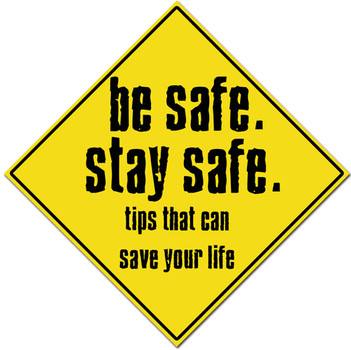Safety tips to keep children safe during the winter school holidays:
Road Safety:
As schools close around South Africa this week, motorists can expect to see more children walking or riding their bikes on the roads. Along with the usual challenges we face on our streets, this creates additional factors to consider.
Road users should also avoid taking any risks when driving in residential areas where children are more likely to be. Apply extreme caution when reversing out of your driveway or parking lots that are also potential hazard areas as especially children are more difficult to see between parked vehicles. Rather create safe play areas for children – separate play areas from driveways and roads. Children must be within eyesight of an adult at all times while outdoors.
Every motorist has a role to play in helping to make the country’s roads safer especially over holiday periods by applying strict safety precautions while practising courteous driving behaviour. Among the major causes of road accidents are driver fatigue, speeding and drunk driving, which are preventable.
Child Safety:
Stranger danger – do not accept a gift / offer from anyone. Avoid being lured to the front gate or front door by someone who approaches you under false pretences. If someone knocks on the door or calls you from the front gate do not open for anyone that you do not know. If there is an intercom system ask parents to teach you how to use it and who to open for.
Ensure that all doors and windows are locked. If you get home and the door is open or a window is smashed, don’t peek inside, instead, go to a neighbour you trust for help.
Ask parents to create an evacuation plan with you in case there is an emergency or you sense danger at home.
Do not share your holiday plans with anyone on social media. Thieves can gain access to up-to-the-minute details through status updates and posts, allowing them to learn when the home is likely to be empty.
Don’t give your home address to any strangers or people you do not know well.
Never go out to meet anyone that you have met through social media.
If you want to practice how to cook make sure you do it under adult supervision first, ask parents to go over the safety rules of the kitchen with you first.
In case of an emergency, like a fire or a sibling getting hurt. It is important that you ask your parents to draw up an “in case of emergency” contact number list and it should be easily accessible like placing it on your refrigerator. It should have your address and home phone number as well as your parent’s numbers and work address. Also get trusted family members details. It is suggested that you store them on your phone, under ‘Emergency’, as follows:
Emergency – Ambulance (10177)
Emergency – Cell phone (112)
Emergency – National (10111)
When going out with friends, try not to wander by yourself. Let your parents know where you will be at all times and arrange to be fetched and dropped off at a safe public place.
If you are at the mall always stay in groups. If someone tries to get you to leave with them. Scream and make the people around you aware of what is happening.
Parents should ensure that they know their child’s friends, their names, where they stay and their parents, if possible, get their contacts. Don’t allow your child to visit friends if there is no adult to monitor them, at least if they need to play, invite their friends over where you are sure they will be safe and where there will be supervision.
Road Safety and the Child Pedestrian https://t.co/9Cn9KcP4TC #ArriveAlive #Pedestrians #ChildPedestrians #RoadSafety @MotusRoadSafety pic.twitter.com/aoE6utIaUv
— Arrive Alive (@_ArriveAlive) April 13, 2020
